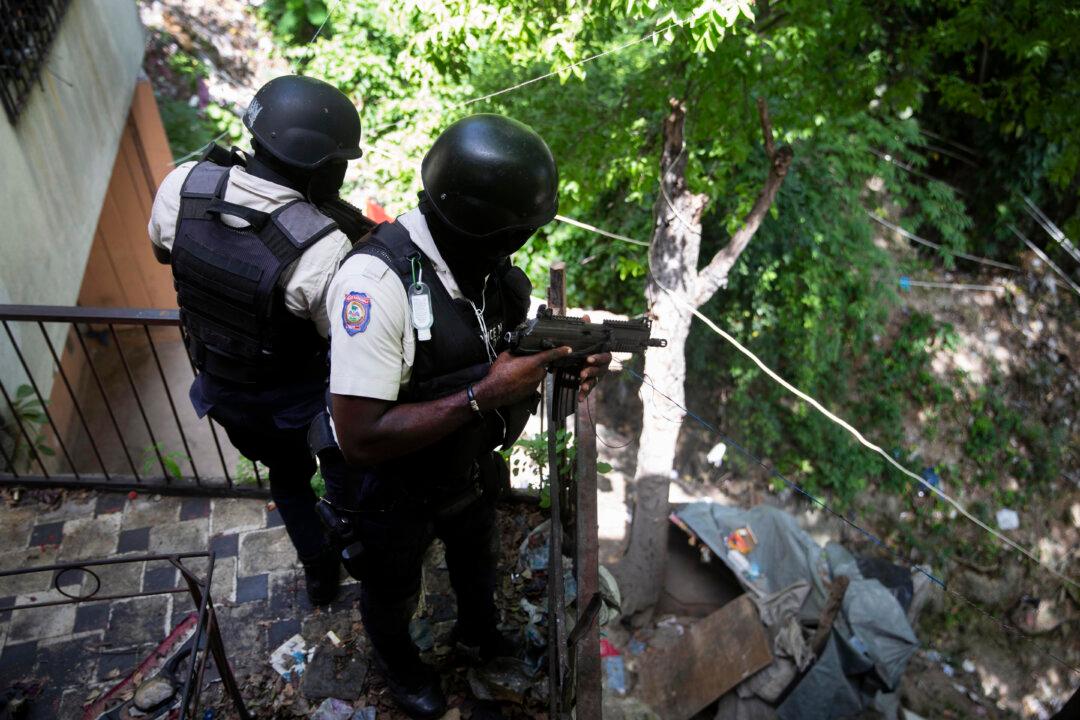BOGOTA, Colombia—The wife of a former Colombian soldier arrested in Haiti in the assassination of President Jovenel Moïse says her husband was recruited by a security firm to travel to the Dominican Republic last month.
The woman told Colombia’s W Radio on Friday that her husband, Francisco Uribe, was hired for $2,700 a month by a company named CTU to travel to the Dominican Republic, where he was told he would be providing protection to some powerful families.





